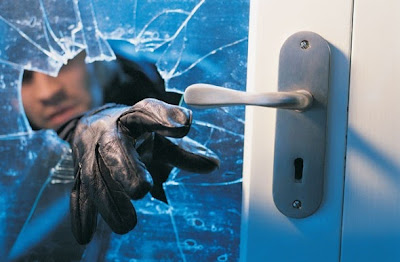Directory and blog about low income housing programs, food stamps, and other social issues affecting poor Americans.
 |
Low Income Housing News, Programs, Government Agencies, and More! |
| Home | About Us | News/ Blog | Help/ Resources | FAQs |
8 Simple Ways to Protect Your Home Against Crime -- Without The Cost of A Security System
Crime is everywhere now. It's not just in big cities but effects smaller communities as well. But even in smaller communities that tend to have lower levels of the more serious types of crime, families want to be sure to protect their homes against burglaries and home invasions. Most people don't have the luxury of spending hundreds or thousands of dollars on home security systems, but there are simple ways in which you can make your home and your family safer.
1. Lock doors and windows
About 30 percent of all burglaries are the result of doors and windows that have been left unlocked. Make it a practice every night and whenever you leave the house to check all doors and windows and make sure they are locked. Broken window or door locks should be fixed immediately. Deadbolt locks are the best. Also check other entrances such as basement windows and sliding glass doors to be sure they are locked securely.
2. Don't open the door to strangers
Teach your children and make it a practice yourself to never unlock the door to strangers. No matter how nice they seem, if you don't know them, don't unlock the door or let them in.
3. Don't leave your house key under the mat
Burgers know all the places where residents are most likely to hide a spare house key. Typical places include under the front door mat, under a flower pot, in the mailbox, under a rock, or above the door frame. Remember, burglars know all about these places and more. The best practice is to give a spare key to a trusted neighbor.
4. Don't leave house workers unattended
When hiring contractors to work inside your home, never leave them unattended. If you can't be there to watch, find someone who can. Make sure you check all doors and windows after they leave to ensure nothing has been conveniently left open for a home invasion later. Never leave any valuables out in plain view while workers are in your home.
5. Don't leave drapes open at night
Burglars often scout the neighborhood for easy pray and to see who has something they want, like a television or stereo set. They may also walk by the house often enough to know your living patterns and where in the house you spend the most time. The rule of thumb at night is when the lights go up, the shades go down.
6. Have a family plan for home invasion
Many families have fire drills that determine a safe plan of action in case of fire. The same can be done regarding home invasions. Discuss as a family where the designated exit doors are and safe places for the children and other members to go in case of a home break-in. This should be practiced as often as fire drills.
7. Don't let burglars know you're gone
If you're going to be away for a few days or longer, stop delivery of all newspapers and mail; this is a dead giveaway to burglars that no one is home. Also put timers on your lights; digital timers are only about $9-$15 and well worth the investment.
8. Join a neighborhood watch club
Neighborhood watch organizations are an excellent way for neighbors to band together, keep an eye on one another, and protect each other from potential crime. Neighbors see each other daily, so they are the most effective form of surveillance. If your neighborhood doesn't have one, call the local law enforcement department for information on how to start a neighborhood watch group.

